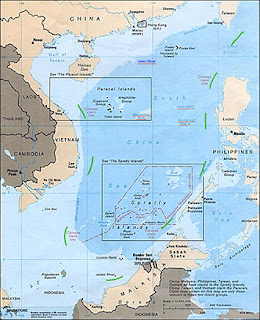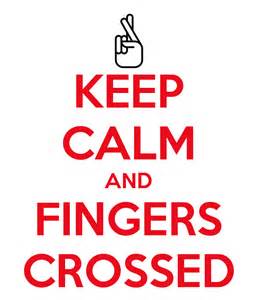This week I find myself in Madrid, the very pleasantly sunny capital of Spain. As I write these words, I am enjoying a very tasty 'desayuno' consisting of coffee, fresh orange juice and a bocadillero (which seems to be a very large chocolate bun) at a local cafeteria, restaurant and cervezeria that glories in the title of "El Restaurante Jordan Gala". Having spent a month shivering and quivering in the unseasonably cold UK (it's been the second coldest April on record, apparently), I decided that it would be expedient to set off on my peripatetic perambulations once more and head South for sunnier climes (as it happens, a heat wave hit Britain three days after I left - que sera...).
Madrid in the last week has enjoyed temperatures in the mid 20's centigrade, occasionally spiking to the low 30's if the local wall-mounted thermometers are anything to go by. These sort of temperatures just about qualify as pleasant for me these days – one becomes somewhat spoilt by the constant 35 plus of Thailand, a little too hot perhaps, especially when compared to the UK, but surprisingly easy to get used to.
The UK, at the time of writing, is caught up in an ongoing campaign prior to a referendum on remaining in the European Union. The actual vote is still nearly two months away, but the tactics employed by the remain campaign seem like an echo of those used to win the Scottish referendum of last year. At the time it was known as 'Project Fear', dire warnings of all the terrible consequences that would befall the Scots if they dared to leave the Union. The current EU campaign feels like deja vu all over again… every piece of bad economic news that emerges is blamed on the possibility of exit, or Brexit as it has become popularly known.
Unemployment was up last month – because of fears of a British exit apparently.
The growth figures were down last month – because of fears of a British exit.
The second coldest April on record – no doubt because of fears of a British exit…
We are told that house prices will drop, wars are more likely, the UK's security will be threatened, industry will suffer, prices in the shops will raise and every family will somehow be £4300 worse off by 2030 (a rather magical figure, as it turned out, produced by projecting figures that the treasury have rarely managed to get right over three months out to fourteen years, then using a completely fictitious method to calculate household income - et voila, £4300!).
It seems that anything and everything negative that happens in the UK at the moment is down to fears of a British exit from the EU. Oddly, the opposite effect seems never to be observed. Whenever good economic stories emerge no reference at all is then made to the possibility of Brexit being at the root. One wonders why?
At the start of the referendum process, and as someone quite pro-European, I was leaning towards the notion that staying in the EU was the better option. I was aware of the relatively peaceful state of affairs since the inception of the Common Market and was inclined to believe that at least some of that peace and prosperity was down to the sharing of the economic interests of the central European powers.
Unfortunately, the more I looked into the matter, the more I realised that the EU is an institution that stands for almost everything that I perceive as being at the root of the problems that plague our World today. One of the most egregious of these is the pernicious effects of globalisation, the process whereby fewer and fewer multi-national companies come to dominate the World's economy, usually undercutting and ruining local communities and small businesses in the process.
Two days ago, I spent a delightfully sunny afternoon in the centre of Madrid. I alighted from the metro at Banca de Espana and made my way up to the Calle de las Infantas. I found this narrow street to be thoroughly charming. I had gone in search of a local shop that specialised in juggling equipment (unfortunately closed recently – yet another victim of the process it seems), but found numerous small and very colourful shops, each unique, each very individual and very Spanish in character. I spent nearly an hour wandering in flaneurial fashion from shop to shop enjoy the imaginative décor, the shop windows and the goods on offer. For someone such as myself, well disposed to strolling through the World's more interesting cities, this was a pleasant experience indeed.
Unfortunately, it did not last long. Pretty soon I was in the Calle del Clavel, leading down to the Gran Via. This pedestrianised area was packed with the likes of Nike, New Balance, Starbucks and various other American based multi-nationals selling exactly the same stuff as they do in Hong Kong, Beijing, Bangkok, London, Paris or New York. The type of corporation that turns you from being a customer into being a consumer. The type of corporation that is killing local business everywhere. The type of corporation that pays rock-bottom rates to their staff and their suppliers, whilst at the same time avoiding tax whenever and wherever possible. Given their influence in the seats of government and in the EU, barely ever are they brought to book for their nefarious practices. All this results in an enormous competitive advantage which makes it nigh on impossible for small, locally run business, paying their fair share of tax and their employees a reasonable wage, to compete.
Small, as E.F. Schumacher pointed out in his 1973 book, is indeed beautiful. It is also somewhat more fragile, especially when opposed by the power of multi nationals backed by the might of trading blocks such as NAFTA and the EU. Such blocks reach well beyond government, well beyond the democratic process to impose their standardised, homogenised, de-individualised World upon us all.
Such trading blocks are little influenced by notions of social responsibility or democracy. They are there to be lobbied by corporations and multi-nationals, often to the mutual benefit of the corporations and the likes of the EU Commissioners. As regards the EU itself, it is interesting to note,that the most powerful part is not the parliament, but the totally non-elected Commission. The politicians come and go, but the all-powerful Commission remains, unreachable, untouchable, unchangeable by the electorate, yet lobbied (often a euphemism in itself) and influenced by big business and the forces of globalisation.
This lack of accountability of the EU Commission is one aspect of the so called 'democratic deficit'. There is lip service to the needs of society, but when it push comes to shove (think Greece, Spain, Italy, Ireland and Portugal) it is the needs of the financiers, of the banks, of the corporations that are catered for, no matter how severe the effects of the austerity imposed on these countries are. In effect, what we have is a massive transfer of money from national governments and tax payers into the hands of corporations. The EU itself is at the very heart of this process.
Back in the Jordan Gala, I find myself enjoying the very sociable atmosphere and the general conviviality of the place. The Spanish, fortunately, seem to have lost little of their appetite for good living, for enjoying themselves, for friendliness, despite suffering for years now under the cosh of austerity imposed via the EU. The effects in the smaller suburbs of Madrid are all too readily apparent; high rates of unemployment, buildings in need of repair, streets needing to be cleaned. Beneath this though, and despite the ravages of draconian and ineffective austerity, the spirit of the people shines through. Spain, like the UK, like many countries in Europe, needs to free itself from the shackles imposed by the EU or face ever more austerity and ever steeper decline in living standards for all but the select few.






































